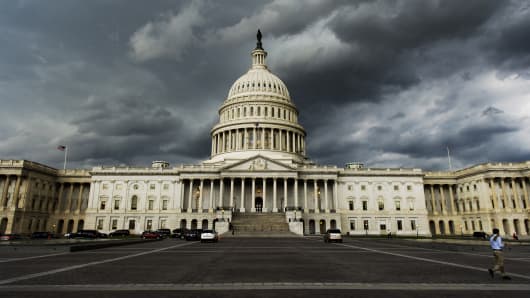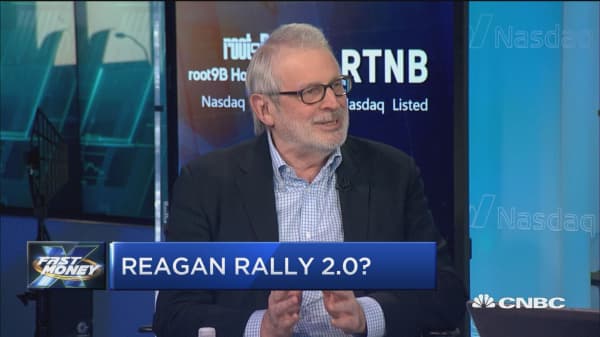After a 15-month hiatus, Congress is once again warming up for another round of self-inflicted budget "crises" that have become all but standard operating procedure when the Treasury needs to raise the limit of its borrowing authority.
That's right: The "debt ceiling" is back.
The budgetary bottleneck arrives again next month, when the latest suspension of the limit expires on March 15. Back in October 2015, Congress decided to punt on the issue by suspending the debt ceiling — with a hard end date.
Some budget watchers are already warning that another bitter budget battle could be looming.
Despite a Republican majority in Congress, the slow budgetary process, delays in repealing/replacing Obamacare, and a lack of internal consensus could spell trouble," said Oxford Economics senior economist Nancy Vanden Houten in a note to clients.
Members of both parties have used the mandatory borrowing cap as a negotiating tactic over a variety of legislative battles. The modern practice dates to the Clinton administration, when a standoff with House Republicans led to a pair of short government shutdowns.






